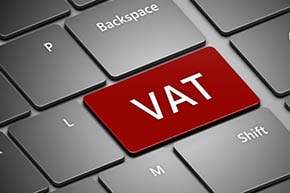- Hotline+971 50 27 28 29 1
- for Individual offices click here
STA's Team of Lawyers in Abu Dhabi, Bahrain, Doha, UAE, Luxembourg, Moscow, RAK, Sharjah, and Singapore. Find a Lawyer. ..
Read more informationVat Implementation in Oman
 The Ministry of Finance in Oman wished to implement a 5% VAT regime from the 1st September 2019. The government of Oman signed the Gulf Cooperation Council (GCC) VAT Framework or Common VAT Agreement in 2017 which launched the consumption tax to help the GCC countries to help countries cope with the oil price collapse and recession that ensued. Saudi Arabia and the United Arab Emirates introduced the VAT in January 2018.
The Ministry of Finance in Oman wished to implement a 5% VAT regime from the 1st September 2019. The government of Oman signed the Gulf Cooperation Council (GCC) VAT Framework or Common VAT Agreement in 2017 which launched the consumption tax to help the GCC countries to help countries cope with the oil price collapse and recession that ensued. Saudi Arabia and the United Arab Emirates introduced the VAT in January 2018.
On the 25th of September 2018, the Oman Chamber of Commerce and Industry held a special seminar titled “Value Added Tax (VAT): The Motives, Objectives and Potential Impacts on Economy and Development”. The government of Oman expected to implement VAT in January 2019 but failed to do so. During the seminar, it was stated that there are now preparations to implement the VAT in September 2019. The state of Oman has, however, indicated that it would make foodstuffs, public transport, healthcare, education sectors and part of the housing sector, subject to a nil VAT rate as these are considered necessities.
The Ministry of Finance in Oman has also stated its intention to comprehend the specific concerns of businesses and companies regarding the impact of VAT on specific industries. The Ministry of Finance also mentioned that there are plans to launch awareness campaigns for business owners and the public once implementation is imminent. Businesses are urged to start preparing early and ensure readiness and day one compliance. Tax experts have stated that it takes, on average, 10 to 15 months for a company to implement VAT. Implementation includes making changes in its system, modifying its contracts, and training its personnel accordingly. The time needed to achieve varies with the size of the company. If companies delay their preparation for VAT implementation, the cost of implementation invariable goes up. The business will need advisers, IT vendors, and developers to ensure VAT compliance, and the less time they have, the hire they will charge for their services.
Furthermore, companies will have to rush to ensure compliance with the new VAT regime which may introduce the risk of non-compliance to the company. There are penalties outlined in VAT legislation for every area where a company is non-compliant. A business will thus be liable to pay these fines where compliance is lacking because of rushed implementation. Therefore, preparation is essential both from a financial perspective and from a risk perspective.

Finally, it is also ideal that businesses assess the readiness of their IT infrastructure to be the foundation of the VAT compliance function. Companies should examine their IT infrastructure and system capabilities to handle all aspects of VAT compliance. Taking heed of the suggestions should ensure that businesses and companies in Oman are ready for VAT Implementation by September 2019